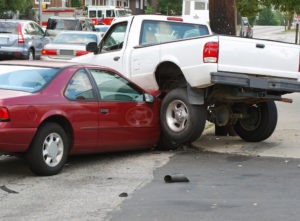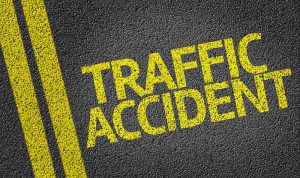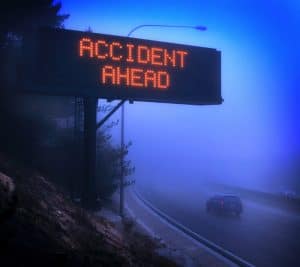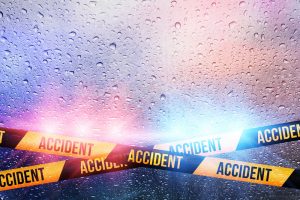
Pittsburgh Failure to Yield Right of Way or Obey Traffic Signals Accident Attorneys
Failing to yield right-of-way and failing to obey traffic signals and signs is one of the major causes of motor vehicle accidents. All road users — drivers, motorcyclists, bicyclists, and pedestrians alike — must know and obey the rules of the road, including yielding when required. But the fact of the matter is that they often do not, and the results can be devastating.
If you or a loved one were recently involved in a failure-to-yield accident, call a Pittsburgh car accident lawyer experienced with failure-to-yield accidents at Berger and Green to discuss what your legal options are and how to proceed with your case: (412) 661-1400. (The consultation is completely free of charge.)
40+ years of experience from strong, knowledgeable, compassionate attorneys.
Start A Free EvaluationWhat are some common types of failure to yield accidents?
A “failure to yield accident” is occurs when one road user fails to yield to another road user that has legal right-of-way. For example, this can involve a cyclist who ran a traffic light and failed to yield to an oncoming car; it can also mean a driver who failed to yield to at a railroad crossing.
Our Pittsburgh personal injury law firm has been handling traffic accident cases in Pittsburgh for over 40 years, including many failure to yield cases. Some of the most common settings for these types of cases include failing to yield:
- When making a turn
- When merging
- In school zones and to school buses
- At traffic lights and stop signs
- At crosswalks
- To pedestrians and cyclists
- When exiting a parking lot or driveway
We know you’re hurting. We can help. Free case evaluations, home and hospital visits.
Contact Us Now For HelpWhat causes failure to yield accidents?
There are various right-of-way driving laws that apply in different types of situations. Pennsylvania Consolidated Statutes § 3323 details the rules and provisions for everyone’s duties at intersections with traffic lights, at stop signs, and at yield signs.
Even though most people are familiar with the rules and know when they are supposed to yield, they do not always comply. There are a lot of underlying reasons why people do not yield when they should. Three of the most common causes for failure to yield accidents include:
- Inattention (e.g., distraction due to texting, daydreaming, eating, talking with passengers, rubbernecking, reaching for something, etc.)
- Driving under the influence of drugs or alcohol
- Impatience and driving aggressively
You need an attorney with the experience and dedication to give your case the care it deserves.
Start A Free EvaluationCan I sue a driver who failed to yield and hit me?
Pennsylvania is a choice no-fault state, so your right to sue depends on your policy details. If you opted for a limited tort policy, you will need to turn to your own insurance company for recovery. You can recover up to your medical benefits and/or wage loss limit, which is typically $5,000, the minimum required protection allowable in Pennsylvania.
However, if you paid the extra premium and opted for a full tort policy, you retain your right to recover for the totality of your damages from the at-fault driver (defendant).
You can do this in one of two ways: by filing a claim with the defendant’s insurance company, or by filing a personal injury suit in civil court. For counsel on deciding which route to take, contact one of our failure to yield accident lawyers.
We can address all the legal hurdles that may be keeping you from getting a fair settlement.
Speak To An Attorney TodayHow do I prove fault for a failure to yield accident?
If you decide to pursue damages from the at-fault party, you will need to prove fault for the accident. Failure to yield is certainly a form of negligence and will mean that person is liable for damages — you just must be able to actually prove it.
Proving fault may be easy in situations where the defendant failed to yield right of way and struck the victim (plaintiff), but it can be much trickier in cases where the plaintiff struck the party that failed to yield right of way.
Because chances are, the defendant or her attorney will try to capitalize on this confusion and argue that you are wholly or partly at fault because you did the striking. If the defendant successfully pins some of blame on you, you will be entitled to less compensation.
You can help prove your case with evidence such as:
- Photos of the accident scene, especially if they show the positions of the vehicles or the location of debris
- Eyewitness statements
- The police report
- Photos of damage to the vehicles involved
When you work with our firm, we can use our resources and strategies to help build your case.
What kinds of damages can I recover if I win my case?
If you file a claim or lawsuit against the at-fault party for a failure to yield accident, you can recover your both economic and non-economic losses. When the other party’s negligence caused your accident, you are entitled to “be made whole again,” which means that the money should bring you back to the same financial situation you were in before the accident occurred.
You can recover all of your current and future expenses and emotional losses, including but not limited to:
- Medical bills and transportation costs for appointments
- Lost wages, loss of benefits, and permanent or temporary disability
- In-home nurses and hired help for household tasks
- Disfigurement and scarring
- Physical therapy and rehabilitation
Mental health expenses - Pain and suffering
- Emotional effects, e.g., post-traumatic stress disorder, depression, anxiety disorders, etc.
- Death benefits (in wrongful death cases)
How should I begin taking action to recover my damages?
Before filing any claim or signing any documents, it is best to run your case by a lawyer so that you can make smart, informed decisions.
Actually, it is best to speak to an attorney before you even provide a recorded statement to the insurance company. Far too many people make simple statements to insurance adjusters that the adjusters later use against them in the claims process.
If you reside in the Western Pennsylvania area, contact Berger and Green for a free case evaluation. After discussing your case, our failure to yield lawyer will explain the best way to move forward and how to maximize your settlement. Call (412) 661-1400.









